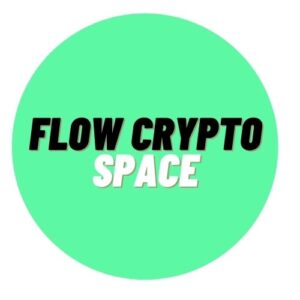
If this category of blockchain-based art and trading cards were called something else, more people might buy non-fungible tokens, or NFTs.
“I think when people think NFT’s, it’s just daunting for them,” he says. “So that’s why we’ve been calling them ‘digital collectibles.’ It’s also why we rebranded.” Yes, investor and early customer feedback informed him and his cofounders that the name for their The Non Fungible Token Company stunk. So they’ve changed it to, simply, Unblocked, a nod to the startup’s mission to remove some hurdles to purchasing NFTs.
Those investors recently showered Unblocked in real-life money: It has raised a $10 million seed round at a $90 million valuation, a high price tag for such an early round—even in crypto, where heady numbers abound. Tiger Global led the investment, which included the maker of NBA Top Shots, Dapper Labs; the singer Shawn Mendes; Jay-Z’s Marcy Ventures Partners; and Oaktree Capital Management.
What does Unblocked do exactly? It is, broadly speaking, a consultancy, which will build a big brand or a big celebrity a bespoke NFT platform. They’ve done a couple already, one for hip-hop group Cypress Group, another for Billboard. (Billboard’s parent company, Penske Media, contributed to the seed money, too.) Unblocked platforms are meant to be as simple and as visually appealing as possible. (Many existing ones are neither.) With this, Wang, who is CEO, is taking a page directly from Dapper’s playbook: Dapper’s release of a sleek and easily used marketplace for Top Shots—video trading cards of basketball players and highlights—ignited the early fervor for NFTs a year ago. They’re collectively now worth nearly a billion dollars.
On an Unblocked platform, a brand will be able to create and distribute NFTs, as well as establish a secondary marketplace for collectors to continue trading them, theoretically continuing to fuel interest for original sales as well as resales. In addition, the Unblocked apps will feature a directory and allow people to list their social media handles to sites like Twitter and Discord, hopefully sparking online communities around the NFTs, which would also help keeping the markets going. Everything is built on Flow, the blockchain launched by Dapper.
Unblocked’s decision to rename itself and to refer to NFTs by the less dorky sounding “digital collectibles” sits in a broader discussion happening around NFTs and what’s called Web 3, a movement in technology for more industries—beyond art and collectibles—to embrace the blockchain. These supporters would like to see widespread adoption happen quickly but continue to recounter resistance, much of it routed in the lingering complexity around completing even the most basic tasks, like buying and selling.
Some have suggested the route taken by Wang and Unblocked: change the marketing and conversation around the tech toward something more consumer friendly. It is not a route loudly advocated by crypto purists, so it is interesting to see Wang publicly trumpet it—and raise so much money based on the idea, a sign that investors see definite promising in such a rechristening.
Wang has some definite challenges ahead. The most obvious: Many NFT platforms and exchanges already exist, including industry leading OpenSea, which enjoys a considerable first-mover advantage. OpenSea and the others offer many thousands of NFTs, not just items from one brand.
Long-term success for a NFT platform selling only one brand largely revolves around the strength of that brand. It’s why Wang envisions producing them mostly for celebrities and other bold-faced names—folks famous enough to pull people away from the large marketplaces such as OpenSea. Wang has reached an informal deal with Dapper where Dapper has promised to pass over some non-sports business to Unblocked. (In the future, do not be surprised to see Dapper buy Unblocked or some additional corporate tie between the two.)
Celebrities certainly have embraced NFTs. Everyone from Quentin Tarrantino to Melania Trump have sold them over the last year. And it makes some sense for stars to want to own their distribution method, where they can ensure all of it—the website design, the resale marketplace, the actual NFTs—meets their standards.
The rush toward NFTs might seem, well, opportunistic at least. “This is not a cash grab,” promises Natalia Nataskin, chief content officer at Primary Wave Music. (The music publisher and talent agency is another investor in Unblocked.) “It’s much more about an extensive engagement building and super fans identifying their communities.” Leaving aside the marketing, there’s a more existential reason. “With the absence of touring for most of the last two years, NFTs and any other ways that fans and artists can engage with one another in the digital world has become really, really important.”

